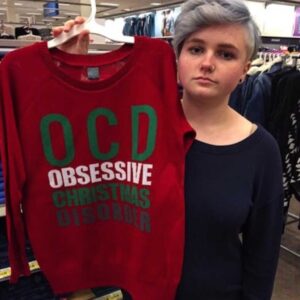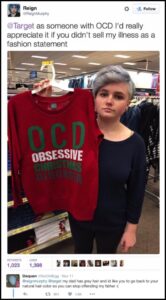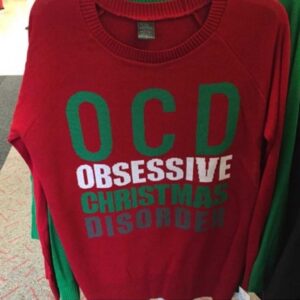Check the comments for the full story. 👇👇



However, some internet users who identified as having OCD felt that the outrage directed at the store was unwarranted and defended the sale of the contentious sweatshirt.
“As someone with OCD, Target’s OCD sweater doesn’t bother me in the slightest,” one user remarked.
“As someone who struggles with OCD, I don’t see any reason to be upset about Target’s ‘offensive’ sweater – it’s perfectly harmless!” echoed another user.
Jessica Carlson, a spokesperson for Target, eventually addressed the backlash and extended apologies to those offended by the merchandise. However, she affirmed that the store had no intentions to remove it from its shelves.
“We currently have no plans to remove this sweater,” Carlson stated.
According to the Anxiety and Depression Association of America, approximately 2.5 million or 1.2% of the U.S. population grapple with OCD.
This wasn’t the first time Target faced controversy. In 2015, a woman criticized the store for selling women’s T-shirts adorned with the word “Trophy” on the front, deeming them offensive. She argued that such T-shirts perpetuated the notion that women could be bought or sold.
![]()





